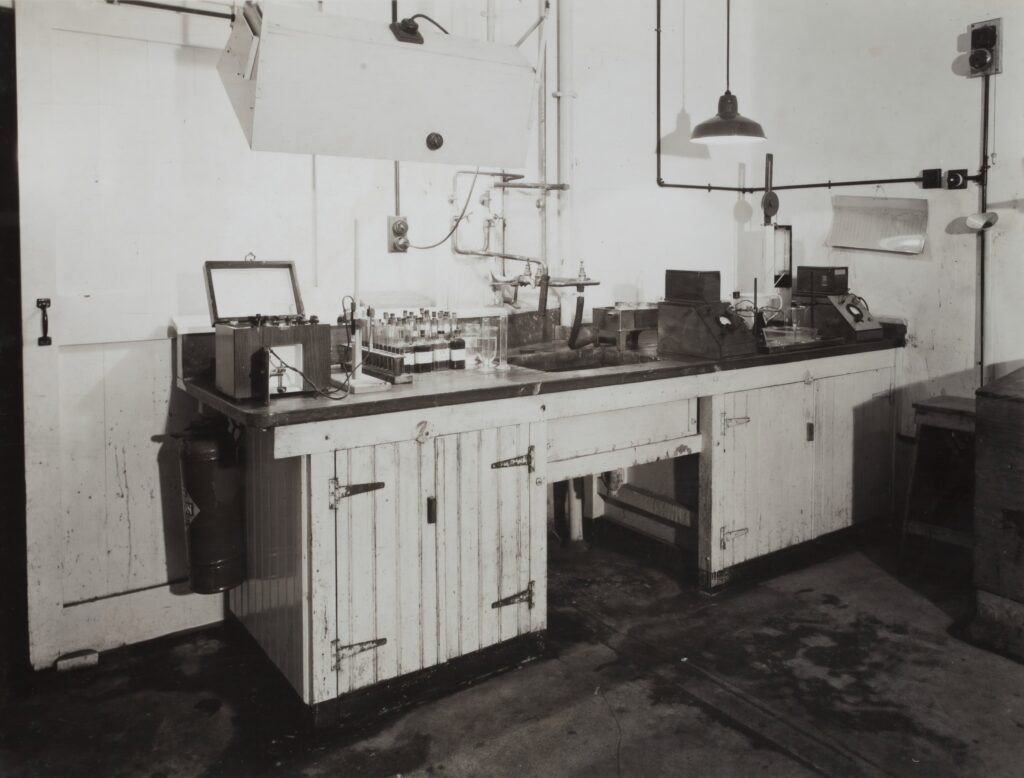Industrial Workshop Project Management: Best Practices is a comprehensive guide that explores the most effective strategies for managing projects in an industrial workshop setting. As I delve into the various aspects of project management, including planning, execution, and monitoring, I will analyze the best practices that can lead to successful outcomes. By examining real-world case studies and drawing upon scholarly research, this article aims to provide valuable insights and practical advice for professionals in the field of industrial workshop project management.



This image is property of images.unsplash.com.
Understanding Industrial Workshop Project Management
Defining Industrial Workshop Project Management
Industrial workshop project management refers to the process of planning, executing, and controlling projects conducted within industrial workshops. These workshops are often engaged in manufacturing or production activities, where a series of tasks are carried out to transform raw materials into finished products. Effective project management in this context involves coordinating various resources, including manpower and machinery, to ensure that projects are completed on time, within budget, and to the satisfaction of stakeholders.
Roles and Responsibilities within the Workshop
Industrial workshop project management entails the allocation of roles and responsibilities among the workshop staff. The project manager is primarily responsible for overseeing the entire project, from initiation to completion. They must possess strong leadership skills, as well as the ability to communicate effectively with all team members and stakeholders. The project manager’s role involves defining project goals, developing project plans, allocating resources, monitoring progress, and ensuring successful project outcomes.
Other key roles within the workshop include technicians, engineers, and production supervisors. Technicians are responsible for conducting various tasks related to production, such as operating machinery, conducting quality checks, and ensuring adherence to safety standards. Engineers play a crucial role in designing and implementing production processes, while production supervisors oversee daily operations and ensure that project milestones are met.
Key Components of Workshop Project Management
Workshop project management comprises several key components that contribute to the successful execution of projects. These components include strategic planning, resource allocation, scheduling, budgeting, quality management, risk management, stakeholder management, and the utilization of project management software. To ensure project success, all these components must be effectively implemented and integrated into the project management framework.
Skillset Necessary for Running Industrial Workshops
Technical Competencies
Running an industrial workshop requires a strong technical skill set. Workshop managers must have a deep understanding of the specific industry, its processes, and the equipment utilized. They should possess knowledge of various manufacturing techniques, materials, and technologies to make informed decisions and optimize production processes. Technical competencies also include knowledge of safety regulations, quality standards, and environmental sustainability practices, which are crucial for maintaining a safe and compliant workshop environment.
Project Management Skills
To effectively manage projects within an industrial workshop, project managers must possess a strong set of project management skills. These include skills in project planning, scheduling, resource management, cost estimation, risk assessment, and communication. Project managers should be proficient in utilizing project management methodologies and tools to streamline project processes, monitor progress, and ensure timely completion of deliverables.
Ability to Handle Risk and Uncertainty
Industrial workshops are inherently prone to risks and uncertainties. Workshop managers should possess the ability to identify potential risks and develop strategies to mitigate or manage them. They should be proficient in conducting risk assessments and developing contingency plans to address unexpected events or disruptions to the project timeline. By effectively managing risks and uncertainties, workshop managers can minimize project delays, cost overruns, and potential safety hazards.
Communication and Teamwork
Effective communication and teamwork are essential in the smooth operation of industrial workshops. Workshop managers should have excellent communication skills to relay project goals, deadlines, and expectations to the team members effectively. They should foster an environment of open communication, where team members feel comfortable expressing their ideas, concerns, and suggestions. Strong teamwork skills are crucial for collaboration, problem-solving, and conflict resolution, ensuring that projects are executed efficiently and with high quality.



This image is property of images.unsplash.com.
Planning and Resource Allocation
Developing a Comprehensive Project Plan
One of the primary responsibilities of workshop project managers is to develop a comprehensive project plan. A project plan serves as a roadmap for the entire project, outlining the tasks to be performed, the timeline, resource requirements, and deliverables. The project plan provides a clear direction and helps in aligning the efforts of the workshop team towards the successful completion of the project. It should include a breakdown of the project into manageable tasks, estimated durations, dependencies between tasks, and the order in which they should be executed.
Understanding Resource Requirements
Resource allocation is a critical aspect of industrial workshop project management. Workshop managers must have a thorough understanding of the resource requirements for each project. This includes manpower, machinery, raw materials, and other necessary resources. By understanding the resource requirements, workshop managers can accurately estimate the project timeline, coordinate resource availability, and ensure that work progresses smoothly without bottlenecks or delays.
Allocating Manpower and Machinery
Once the resource requirements are determined, workshop managers must allocate manpower and machinery effectively. This involves assigning the right staff members with the necessary skills and knowledge to perform specific tasks. It also includes ensuring that the machinery and equipment required for the project are available, properly maintained, and in good working condition. Effective manpower and machinery allocation contribute to the efficient execution of projects, helping to optimize productivity and ensure timely project completion.
Scheduling and Time Management
Creating a Realistic Timeline for Projects
Scheduling is crucial in industrial workshop project management to ensure that projects are completed within the expected timeframe. Workshop managers must create a realistic timeline that takes into account the scope of work, resource availability, and potential risks and uncertainties. A well-designed project schedule allows for proper sequencing of tasks and ensures that all activities progress smoothly towards the ultimate goal. It also provides a basis for monitoring progress and identifying potential delays or issues that may arise during the project.
Importance of Time Management in Industrial Workshop
Time management is essential in industrial workshop project management to ensure efficient resource utilization and timely project completion. Effective time management involves setting priorities, establishing deadlines, and allocating sufficient time for each task. It also requires monitoring progress, identifying any deviations from the schedule, and taking corrective actions to bring the project back on track. By effectively managing time, workshop managers can reduce the likelihood of delays, cost overruns, and potential negative impacts on customer satisfaction.
Techniques for Effective Scheduling
To achieve effective scheduling, workshop managers can utilize various techniques and tools. One such technique is the Critical Path Method (CPM), which helps identify the sequence and dependencies of tasks to determine the most critical activities that must be completed on time to prevent project delays. Gantt charts are also commonly used to visualize project schedules, showing the start and end dates of each task and their interdependencies. Other techniques, such as Agile project management, can be adopted to accommodate changing project requirements and promote flexibility in the schedule.



This image is property of images.unsplash.com.
Budgeting and Cost Management
Understanding the Financial Aspects of a Project
Effective industrial workshop project management includes a thorough understanding of the financial aspects of a project. Workshop managers must have a clear understanding of the project budget, including costs for labor, materials, equipment, and any other expenses. By understanding the financial aspects, workshop managers can make informed decisions throughout the project lifecycle, ensuring that costs are accurately estimated, controlled, and monitored.
Budgeting Techniques for Small and Large Scale Projects
Budgeting techniques vary depending on the scale of the project. For small-scale projects, workshop managers can adopt bottom-up budgeting, which involves estimating the costs of individual tasks and aggregating them to determine the overall project budget. For large-scale projects, top-down budgeting may be more suitable, where a high-level estimate is made first, followed by the allocation of budget to various components of the project. Regardless of the technique used, budgeting should involve a thorough analysis of cost drivers, historical data, and any uncertainties or risks that may impact the budget.
Monitoring and Controlling Costs
Industrial workshop project managers must continuously monitor and control project costs to ensure that they remain within the allocated budget. This involves tracking actual expenses against the budgeted amounts and identifying any variances. In cases where costs exceed the budget, workshop managers should investigate the reasons behind the deviations and take appropriate actions to address them. Cost control measures may involve implementing cost-saving initiatives, renegotiating contracts, or revising the project scope to align with the available budget.
Quality Management in Industrial Workshops
Recognizing the Importance of Quality Management
Quality management plays a crucial role in industrial workshop project management. Delivering products and services that meet or exceed customer expectations is essential for maintaining a competitive edge in the market. Workshop managers must recognize the importance of quality management and its impact on customer satisfaction, operational efficiency, and long-term business success. By prioritizing quality, workshops can ensure that their products and services consistently meet the desired standards and requirements.
Embedding Quality Control in Project Processes
To successfully implement quality management in industrial workshops, workshop managers should embed quality control into project processes. This involves developing and implementing quality control procedures, such as inspection protocols, quality documentation, and performance metrics. Quality control should be integrated into all stages of the project, from design and procurement to production and delivery. By systematically monitoring and controlling quality, workshops can identify and address any deficiencies or non-conformities promptly, ensuring that the final products meet the required specifications.
Training Workers on Quality Standards and Regulations
Achieving and maintaining high-quality standards requires the involvement and commitment of the entire workshop team. Workshop managers should invest in training and development programs to ensure that workers are aware of quality standards, regulations, and best practices related to their specific roles and responsibilities. By providing regular training sessions, workshops can enhance the skillset of their workforce, promote a culture of quality, and empower employees to contribute to continuous improvement efforts.
Managing Project Risks and Uncertainties
Identifying Potential Risks
Industrial workshop project management involves proactive identification of potential risks that may impact project outcomes. Workshop managers should conduct thorough risk assessments to identify and understand the risks associated with the project, such as equipment failure, supply chain disruptions, or workforce shortages. By identifying potential risks early on, workshop managers can develop appropriate risk management strategies to mitigate or minimize their impact on the project.
Formulating Risk Management Strategies
Once risks are identified, workshop managers must formulate risk management strategies to address them effectively. Risk management strategies may include risk avoidance, risk transfer, risk mitigation, or risk acceptance, depending on the nature and severity of the identified risks. Implementing risk management strategies involves developing contingency plans, conducting regular risk assessments, and establishing clear protocols for risk monitoring and reporting. By effectively managing risks, workshops can enhance project resilience and minimize potential negative impacts.
Dealing with Uncertain and Unexpected Events
In addition to managing risks, workshop managers must also be prepared to handle uncertain and unexpected events that may arise during the project. Uncertainties can include changes in customer requirements, market conditions, or regulatory frameworks. Workshop managers should foster a culture of adaptability and flexibility within the team, enabling them to respond quickly and effectively to unforeseen circumstances. This may involve revising project plans, reallocating resources, or engaging with stakeholders to address emerging challenges.
Communication and Stakeholder Management
Effective Strategies for Workshop Communication
Communication is a critical aspect of industrial workshop project management. Workshop managers must establish effective communication strategies to ensure that information flows smoothly among all stakeholders. This includes regular project updates, clear instructions, and effective feedback mechanisms. Communication can be facilitated through various channels, such as meetings, email, project management software, or other collaborative platforms. By maintaining open and transparent communication, workshop managers can foster collaboration, address any issues or concerns promptly, and keep all stakeholders informed about project progress.
Engaging with Stakeholders
Industrial workshops involve numerous stakeholders, including clients, suppliers, regulatory bodies, and internal team members. Workshop managers must engage with stakeholders throughout the project lifecycle to establish clear expectations, address any concerns, and promote collaboration. Effective stakeholder engagement involves understanding their needs and requirements, actively involving them in decision-making processes, and providing regular updates on project progress. By fostering positive relationships with stakeholders, workshops can enhance overall project success and long-term business partnerships.
Dealing with Conflicts and Issues among Stakeholders
Conflicts and issues among stakeholders can arise during industrial workshop projects. Workshop managers should possess strong conflict resolution skills to address these challenges effectively. This may involve mediating between conflicting parties, facilitating constructive dialogue, and finding mutually beneficial solutions. It is essential for workshop managers to maintain a neutral and unbiased approach while addressing conflicts, ensuring that the project’s objectives and interests of all stakeholders are prioritized.
Utilizing Project Management Software
Exploring Various Project Management Tools
In today’s digital age, utilizing project management software is crucial for effective industrial workshop project management. There are various project management tools available that can streamline project processes, enhance collaboration, and provide real-time project visibility. These tools may include project scheduling software, task management platforms, collaboration tools, and communication software. Workshop managers should explore different options and select the most suitable tools that align with their specific project management needs, budget, and technological requirements.
Leveraging Technology for Efficient Management
Technology plays a significant role in improving the efficiency of industrial workshop project management. Workshop managers should leverage technology to automate repetitive tasks, track project progress, and facilitate data analysis. For example, using sensors and Internet of Things (IoT) devices can enable real-time monitoring of equipment performance and alert workshop managers to potential issues or failures. By leveraging technology, workshops can optimize resource allocation, reduce errors, and enhance overall project efficiency.
Techniques for Adapting to New Technologies
The rapid advancement of technology necessitates continuous learning and adaptation in industrial workshop project management. Workshop managers should stay updated with the latest trends and advancements in project management software and techniques. They should actively seek opportunities to enhance their technical skills, attend professional development programs, and engage in industry conferences or workshops. By adapting to new technologies, workshop managers can stay ahead of the competition, improve project outcomes, and drive innovation within their workshops.
Continuous Improvement and Learning
The Importance of Learning and Evolving
Continuous improvement and learning are central to successful industrial workshop project management. Workshop managers should recognize the importance of learning and evolving to meet new challenges and opportunities. Embracing a culture of continuous improvement enables workshops to identify areas for enhancement, streamline processes, and deliver superior project outcomes. By fostering a learning environment, workshop managers can encourage innovation, knowledge sharing, and personal development among their team members.
Feedback Mechanisms for Continuous Improvement
Feedback mechanisms play a crucial role in continuous improvement efforts within industrial workshops. Workshop managers should establish channels for collecting feedback from team members, stakeholders, and customers. This may include regular performance reviews, project post-mortems, surveys, or suggestion boxes. By actively seeking feedback, workshops can gain valuable insights, identify areas for improvement, and implement necessary changes to enhance project management practices and overall workshop performance.
Training and Development Opportunities for Workers
Investing in training and development opportunities for workers is vital for the growth and success of industrial workshops. Workshop managers should provide regular training sessions to enhance the skills and knowledge of their team members. This may involve technical training on new equipment, software, or manufacturing techniques, as well as soft skills training related to communication, teamwork, and problem-solving. By investing in the professional development of workers, workshops can foster a highly skilled workforce, improve project outcomes, and cultivate a culture of continuous learning.
In conclusion, industrial workshop project management involves various components and skills necessary for successful project execution. Workshop managers must possess technical competencies, project management skills, and the ability to handle risks and uncertainties. Effective planning and resource allocation, along with scheduling and time management, are crucial for timely project completion. Budgeting and cost management, quality management, stakeholder management, and the utilization of project management software are essential for overall project success. Continuous improvement and learning, coupled with effective communication and engagement with stakeholders, are essential for sustaining long-term business growth in the industrial workshop context.
